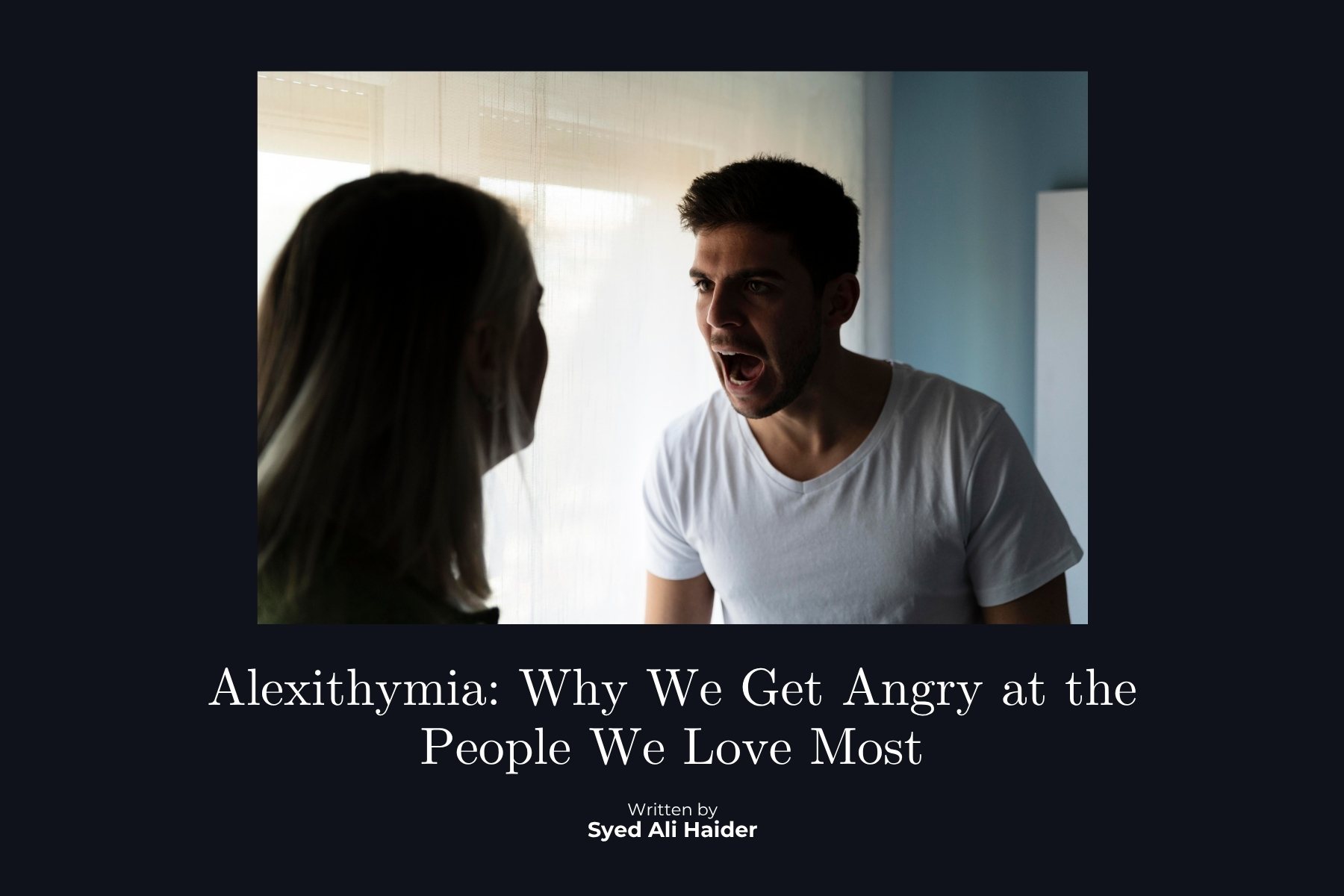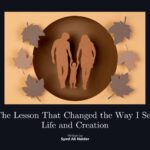Alexithymia: Why We Get Angry at the People We Love Most
Have you ever noticed how some people are extremely polite, calm, and kind to strangers, yet lose their temper over the smallest things with their loved ones? It feels unfair, almost confusing. But psychology says there’s a deep reason behind this pattern.
What Is Alexithymia?
Alexithymia is a psychological condition where a person struggles to recognize, process, and express emotions in a healthy way. They’re not emotionless, they just don’t know how to translate what they feel into words. So instead of showing sadness, fear, or hurt, they often express anger.
In relationships, this looks like sudden outbursts, harsh reactions, or an emotional disconnect. The closer the relationship, the stronger the reaction. That’s why people with alexithymia often appear calm around strangers but seem explosive or distant with family and partners.
The Hidden Pain Behind Anger
For many people, anger becomes a shield, a defense mechanism built over years of pain, disappointment, and emotional neglect.
Maybe they grew up in homes where love was conditional, where no matter how much they tried, it was never enough. Maybe they were constantly criticized or ignored, rarely praised or appreciated.
Over time, their brain learned a survival strategy: “If I get angry first, I can’t get hurt again.”
That’s how anger slowly replaces vulnerability. It becomes a wall to protect the wounded inner child that never felt safe.
The Role of Childhood and Upbringing
Most people who develop alexithymia didn’t just wake up one day like this, they were shaped by their childhood experiences.
Harsh parenting, emotional neglect, or inconsistent love can make a child internalize the belief that their emotions don’t matter. So, they stop expressing them.
As adults, they may appear strong or independent, but inside they’re carrying old wounds that never healed. These unprocessed emotions sit quietly until something small, a word, a tone, or a moment of silence triggers them. Then, all that buried pain rushes out as anger.
When Relationships Trigger Old Wounds
This pattern becomes especially painful in romantic relationships.
Imagine someone with alexithymia being with a partner who has an avoidant attachment style someone who shuts down during conflict instead of communicating.
For the alexithymic person, that silence feels like rejection. So they unconsciously use anger to force a reaction, just to feel seen.
But that only makes things worse. The avoidant partner retreats even more, and both people feel misunderstood and emotionally unsafe.
How to Heal Alexithymia
Healing begins the moment you realize your anger isn’t the problem, it’s a symptom of something deeper.
Here’s how to start the process:
1. Recognize Your Inner Child
Understand that the anger you feel today is often your inner child’s pain resurfacing. It’s not about your partner, your family, or your coworker, it’s about the child who didn’t feel safe expressing emotions.
2. Acknowledge the Defense Mechanism
Your brain learned to use anger as protection. Appreciate that it kept you safe once, but also realize it’s hurting your relationships now. Awareness is the first step to change.
3. Rebuild Emotional Safety and Self-Worth
Start affirming your worth every day. Learn to sit with your emotions instead of running from them.
Give yourself the love, patience, and validation you never received. Journaling, therapy, or mindful breathing can help you connect with what you’re truly feeling beneath the anger.
4. Practice Emotional Expression
When you feel triggered, pause before reacting. Ask yourself: “What am I actually feeling right now hurt, fear, sadness, or rejection?”
Learning to label your emotions rewires your brain to process them healthily.
5. Seek Professional Guidance
Working with a relationship counselor or trauma-informed therapist can help you unpack years of emotional conditioning. Healing alexithymia isn’t about fixing yourself, it’s about learning to understand yourself.
Final Thoughts
Alexithymia isn’t a weakness or a personality flaw. It’s a psychological pattern born from pain. But the good news is, with awareness and effort, it can be healed. When you start tending to your emotional wounds, your relationships begin to change too.
The same people who once triggered your anger can become part of your healing if you learn to meet your emotions with compassion instead of suppression.
If this feels familiar, start small. Recognize your patterns, be kind to yourself, and seek help when needed. Because once the wounds begin to heal, the world no longer has the power to hurt you the same way again.
— Ali Haider, Relationship Counselor





2 Comments
Bilquees
Thank you so much your words actualy describes my inner thoughts..
But one thing that usually makes my my thoughts go beyond like really husband’s are likely to show extreme calmness in words specially even these stupid gfs’ are extremely insulting them ina such way like I thought is this my husband who is actually like begging her in words at the home u don’t even know how to communicate.why why I just don’t get answers like what was in me that can not talk about they even have shared every little emotions with them so Why not with their wife??
Heart2Heart
My dear, I can feel how much this is hurting you. But remember, a man doesn’t show the same version of himself to everyone. Sometimes he seems calmer or more open with someone outside because there’s no history, no expectations, no fear of being judged. That doesn’t mean she was more important or that something was missing in you.
Many men find it harder to express emotions to their wives because that relationship actually matters to them — it carries weight. Their fears and insecurities show up at home, not outside.
Your worth was never the problem. His emotional limitations were.
And the softness he gave someone else can still be built with you — through an honest, gentle conversation, not blaming yourself.